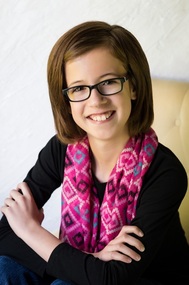 Hello! This is Ann Hirshberg again, one of the writers who will be featured in Brock Eastman’s Galactic Exploration Collection. In case you didn’t read my previous post on his blog, I had written about some of the challenges that I have needed toovercome in the writing process for my portion of the collection. Now, I would like to give you a sneak-peek of some aspects of the story itself. My novella that I have written is entitled Saving Jangolin. It centers on Ky, an inquisitive, clever street urchin who has lived on the planet Jangolin his entire life. Through an unexpected turn of events, he meets with Rowena, the young, newly crowned queen of the planet. Together, the unlikely pair must work to solve a mystery that could affect Jangolin’s future greatly, and Ky is launched on an adventure like nothing he has ever experienced. During their quest, Ky and Rowena discover a few allies, as well as, despite their extremely contrasting backgrounds, develop a close bond of friendship. They must each learn to cope with loss and defend others from danger. One thing I really enjoyed while creating this story was playing with the characters’ personalities. For example, Rowena is quite adventurous and daring in spite of her royal upbringing, and another important character always ends up asking a lot of questions, due to his curiosity and skepticism. I am very excited to be sharing my novella with the world. I hope to give my readers a great experience while reading it!
0 Comments
Interview by Brock Eastman Featuring the Son of Angels series I could not put down the Son of Angels series. From the dynamic character development to the intertwining of spiritual themes into a world that each of us lives in, Jerel captured my attention and didn’t let go. Communicating spiritual themes to kid through a story of fiction, can be a challenge in itself, but Jerel did a fantastic job maintain the biblical truths while creating an exciting adventure. With four books out, Spirit Fighter, Fire Prophet, Shadow Chaser, and Truth Runner, readers can really dig into the world and befriend the characters. After reading these four books, I really wanted to know more about the series, so I asked Jerel for an interview. 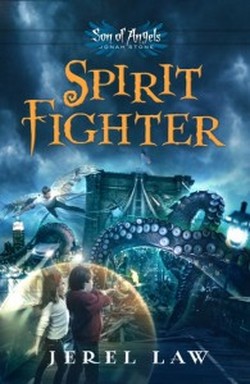 Brock: What is your inspiration for writing this series? Jerel: I find loads of inspiration for my writing in my three quirky, funny kids! They love to read adventure and fantasy books, and I wanted to give them something that would put their very real faith in a world of action and adventure. Combine that with my own curiosity about some of the more mysterious passages in the Bible and the Jonah Stone: Son of Angels series was born. Brock: What do you hope kids take away from the series? Jerel: As a writer, my challenge is to make each book nearly impossible to put down! Beyond that, though, if I could take the question to a deeper place, I want kids to find themselves in the book. I want them to see themselves as Jonah, Eliza, or Jeremiah, figuring out how to make sense of their faith in God in the middle of sometimes-dire circumstances. I hope they’ll come away with a sense of how awesome God is and how much of an impact their faith can have in our world. 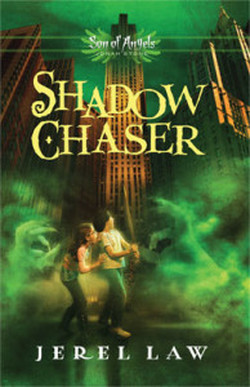 Brock: Why did you choose to write the fourth books topic about Jonah running from God? Jerel: Jonah and his brother and sister go through something very tragic at the end of Shadow Chaser, book 3. They experience a loss that no one should have to face, but many do. And like a lot of people, he chooses to deal with the crushing pain of the loss by running away. I tried to carry through the theme of running from God that we get in the biblical Jonah, and then how God gently – but firmly – helps him understand a huge truth – you just can’t outrun God! Brock: What do you want families to take from this series? Jerel: A lot of families in novels these days are extremely dysfunctional – and let’s be honest, sometimes that makes for interesting reading. But I wanted to show a fictional family that, yes, has their issues, but is also encouraging one another in their own ways to follow God – no matter what. I hope that families who enjoy the series together will be encouraged to help each other figure out the ways they can serve God best with their lives. Brock: Expound on the spiritual theme? Jerel: I find myself writing without a certain theme in mind, but inevitably, when I look back at the books, themes have arisen. I’d say some of the big themes are the reality of the spiritual battle all around us; the fact that we each have gifts and abilities given to us by God that we can use for good; and that everybody, no matter how seemingly small or insignificant, has the power to change the world. Brock: Is it fun to write a spiritual fantasy adventure? Jerel: I love writing in this genre! There are so many possibilities with each page. I love the challenge of communicating spiritual truth in a way that kids can grab ahold of. I think that will always be something I am drawn to. Brock: Is it difficult to be accurate to Biblical perspective/facts when writing fiction fantasy? Jerel: Yes! I’m so thankful for a great editor at Thomas Nelson, who helps me stay as close as possible to biblical truths. Part of the fun is communicating these bedrock truths in fresh, creative ways. But it’s critical that we make sure we land with two feet on a biblical perspective. Brock: Are there more books planned? Jerel: We are through book 4 right now…I have as many as 8 planned for the series! I can’t wait to unveil them at some point in the near future. Brock: Jerel thanks for the interview and I certainly am looking forward to more books in the series, or in a new series. God has blessed your writing. 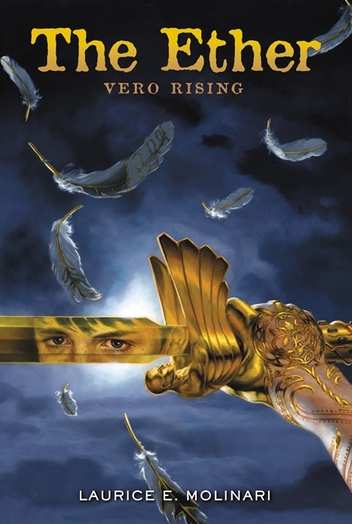 Interview by Brock Eastman Featuring the Ether Series Brock: What was your inspiration for writing this series? Laurice: My inspiration to write the Ether series came from my own fascination with angels and their mission to protect and guide us. Angels are God’s fiercest warriors who wage battles on our behalf. Brock: Tell us about the main characters? Who are they, what makes them unique. Laurice: Vero Leland, 12, thinks he’s a typical suburban kid until one day he discovers he’s actually a guardian angel, which would explain why ever since he was a toddler, all he has ever wanted to do was fly. It would also explain the many strange creatures he sees. Laurice: His older sister Clover, 13, was always tight with Vero, but lately as Vero begins to act strangely, she distances herself from her brother. Yet, Clover has her own secret abilities. She has visions that others cannot see. Brock: Give us one fact about each main character that no one else knows. Laurice: Vero knows exactly how many licks it takes to get to the Tootsie Roll center of a Tootsie Pop. Clover has no idea how many licks it takes to get to the Tootsie Roll center of a Tootsie Pop. She’s too impatient. Brock: In three three words what is this book about? Laurice: 3 words: Good versus Evil Brock: Do you outline the entire book before starting, or do you write as you go and let the characters take control of the story? Laurice: I usually know the beginning of the story and the ending, but not too much in between. So I just start writing and see what happens. I’m a big proponent of “plot is character in motion.” Brock: How do you believe this story relates to the lives of readers? Laurice: I believe that every single person has a guardian angel watching over him or her, and should listen to them and call upon their angels for help. Brock: What is your favorite genre to write for? Laurice: My favorite genre is dramedy. I love to make people laugh, then cry – sort of like real life. Brock: What is the biblical background or basis for the series? Laurice: A great deal of biblical background from the series came from both the old and new testament. So much of what we know about angels comes from there. Brock: How many books are planned for this series? Laurice: It’s a three book series – Vero Rising, Pillars of Fire and The Dragon’s Descent. Brock: Any certain research required for the book, or is it all from your imagination? Laurice: A great deal of Biblical research was involved in writing the Ether along with some Judeo-Christian folklore. Brock: How do you strike the right balance in your book? Laurice: I’m always juggling between action and character. If I think I’m too action heavy, it’s time for some character moments. Brock: What do your readers think about your latest series? Laurice: The response has been great. My favorite website is DOGO Books (all kid reviews.) I love reading what the kids have to say about the book. Brock: How does it feel to have your work published? Laurice: I’ve written screenplays most of my career, and the Ether is my first book. I’m often asked which I prefer. And I’d have to say that I actually don’t have a preference. It was just as exciting to sit in the theater and see my movie for the first time as it was to hold the book in my hand for the first time. Brock: Are you working on the next book in the series? Laurice: The first book came out last year. The second, Pillars of Fire, comes out January 2015, and I’m hard at work on The Dragon’s Descent, the final book in the series. Brock: Can you give us a hint at the next book in the series? Laurice: In book 2, Pillars of Fire, Vero and his fellow angels compete in the Angel Trials, an Olympic style competition that will test everything they’ve learned and pit them against advanced angels from other realms. But when a new evil threatens his sister at home, Vero has to choose which battle he can’t afford to lose. 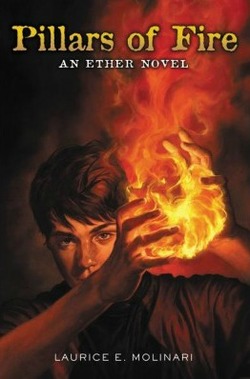 Brock: Do you plot or outline the entire series before you begin writing, or do your books take on lives of their own? Or is there a combination? Laurice: I usually know the beginning of the story and the ending, but not too much in between. So I just start writing and see what happens. I’m a big proponent of “plot is character in motion.” Brock: Were any scenes or characters cut from the book? Can you give an example? Laurice: No characters were cut, but definitely a few scenes were cut mainly for the flow of the book. And even then, most of the cut scenes showed up in some form in the later books. Brock: Is it difficult to be accurate to a Biblical perspective or Biblical facts when writing fantasy fiction? Laurice: Yes, I try to stay as accurate as possible, but my series is a work of fiction so I definitely need to use my imagination quite a lot. Brock: How do you hope parents will use this book with their kids? Laurice: My hope is that parents will read the book along with their children. It’s a great way to get a dialogue about spirituality going. Brock: What do you hope kids take away from this book or series? Laurice: I want kids to know they are never alone in this world. Their angel is always with them, and hope they will listen to their angel. Brock: Where do you like to write? Laurice: I have an office in my house. Once my children go off to school each morning, I write until it’s time to pick them up because once they’re home, it’s chaos. Brock: Are you a full-time or part-time author/writer? Laurice: I’ve been lucky enough to be able to be a full-time writer for all my adult life. Brock: How long does it usually take you to write a single book? Laurice: I wrote the first book in four months, but with the following books, I’ve needed more time. Each book gets progressively harder to write as the story builds. Brock: What do you hope readers take away from the series? Laurice: I hope that readers will see the world in a different light, that angels surround us all. Brock: Expound on the spiritual themes in the book/series? Laurice: My book is ultimately about faith. The archangel Uriel says it best when he tells Vero, “The opposite of faith is not doubt. The opposite of faith… is fear.” And my character needs to grow in faith as we all do. Brock: What is your "how I got published" story? Laurice: I was a fellow at the American Film Institute in Los Angeles, and my very first screenplay was given to an agent while I was still attending AFI. She sold it within 24 hours to Ron Howard’s company “Imagine,” and the movie was green lit a few weeks later. It was the movie, “My Girl.” I quickly became a working writer. After years of writing screenplays, I thought I’d try a book. Brock: When did you realize you wanted to become a writer? Laurice: Right after college, I was an NBC page at 30 Rock in NY. The first time I walked onto the Letterman set and watched the writers giving Dave lines, I realized I wanted to be a writer. Brock: What was your favorite book as a teen or child? Laurice: As a child, I loved the Judy Blume books and as a teen, it was “To Kill A Mockingbird,” that sparked a love of reading. Brock: What is the one author, living or dead, who you would co-write a book with and why? Laurice: The playwright Horton Foote. He wrote the best characters. Brock: Coke or Pepsi? Laurice: Diet coke. Brock: Soft shell or Hard Shell tacos? Laurice: Hard shell. Brock: Favorite place to vacation? Laurice: My cabin. Brock: Favorite season? Laurice: Fall. Brock: Do you have a particular drink or food you consume when you write? Like coco, raspberry tea, animal crackers? Laurice: My nails and Diet Snapple Ice Tea. Brock: Favorite color? Laurice: Yellow. Brock: What’s your favorite holiday memory? Laurice: Walking to midnight mass on Christmas Eve with my grandfather during a snowstorm. I didn’t know it at the time but it would be my last Christmas with him. Brock: Do you have a favorite Bible verse? Laurice: I love the Beatitudes. Brock: Favorite pasta dish? Laurice: Spaghetti with homemade meat sauce. Brock: Do you listen to music while you write? If so what are some examples? Laurice: I only listen to music when I’m writing emotional scenes. And they have to be sad, weepy songs. Brock: Your first movie was My Girl... why do you enjoy writing for kids? Laurice: I love writing for kids who are about 11 or 12. It’s around that age that they’re starting to figure out the world, and I love that perspective, seeing the world through their eyes. Brock: Who are your favorite literary characters? Laurice: Scout, Owen Meany, and Mrs. Bennet.  Hey there explorers! Elissa here today. I thought you might enjoy reading a bonus scene that I wrote to introduce you to some of my characters. My contribution to the Galactic Exploration Collection is a story about a bunch of kids who try out for an interplanetary Olympics called the Galactic Games. In this scene you'll meet Franco and Ebba as they have a little mishap during a training exercise. Enjoy! “Why am I not surprised you’re in here,” said a voice from the doorway. Franco Carito looked up from his most recent creation. A combination bread toaster and egg slicer. He called it the mega-awesome-sandwich machine. It was a working title. It looked rough, even he could admit that. Wires stuck out like deranged porcupine quills, and the casing pieces were a variety of different colors since he’d swiped them from other projects. Franco’s friend and occasional training partner, Ebba Zadan, poked the pile of discarded wires that littered his insta-desk, a portable floating surface that he could move around his workshop as saw fit. “You promised you’d be at the practice arena after lunch. You totally forgot. Didn’t you?” Ebba asked. Franco grimaced and checked his watch. He hadn’t forgotten to meet her. He’d been so focused on perfecting his sandwich maker before lunch that he’d forgotten to eat. It was now after two o’clock. Definitely too late for lunch. “Sorry. Really. I just need to finish connecting these wires. Then I can make the best sandwich the world has ever seen.” He glanced up at her. He could tell she wasn’t interested in waiting. With a sigh, he dropped his multi-tool and followed Ebba out of his workshop. “Our training schedule says we’re supposed to practice flying today. Do you want to use the aerogliders or something bigger like the sky canoes?” Ebba asked. Franco made a face. He and Ebba planned to try out for the Galactic Games, an interplanetary sporting event held every year on Galenka, the game planet. During tryouts, Coach Cabe Tolliver would have them complete a series of dangerous tasks. He and Ebba needed to prepare for anything. “Sky canoes? Do you really think Coach Tolliver will use those? They’re horribly slow.” “Right,” Ebba said. “But they require teamwork.” Franco’s mind immediately went to the canoe’s propulsion system. Could he rewire the electro-paddles to make them faster? Fortunately, when they arrived at the training field, the two sky canoes were both taken by other athletes. He and Ebba selected the only thing available, the wind walkers. These electronic boots allowed him to walk on air currents above the trees. “These are so lame,” Ebba complained as she programmed the boots. “You owe me big time.” Franco ducked, embarrassed. “You can have my first mega-awesome egg sandwich.” Ebba wrinkled her nose, “I’ll pass. Thanks anyway.” She stood up and gave her boots an experimental bounce. They propelled her six feet in the air. She ducked to avoid hitting her head on the roof of the equipment shed. When Franco was ready, they set out on the sky course. Thirty feet above the tree line was a field of floating boulders that had been arranged for the athletes to train on. “This can’t be that hard,” Ebba said as they bounded onto the course. “They’re just rocks.” “That’s what scares me,” Franco said, pulling out his light-ray gun. A whispering whoosh passed through the sky course. A barrage of grape sized stones pounded across Franco’s shoulders, knocking him forward. Caught off balance, Franco stumbled forward. He caught himself on a pear shaped boulder. White hot pain seared through his protective iron-skin glove. He yelped and righted himself quickly, nearly stumbling into a second boulder in the process. “Hot. Very hot. Don’t touch the boulders.” “Are you okay?” Ebba asked. Franco wiggled his fingers inside the iron-skin. “Maybe a blister. I’ll survive.” They bounded through the course, careful to avoid touching the blistering boulders. As they went, Franco made a mental map of their surroundings, trying to calculate the fastest way out. “Franco, look out!” Ebba screamed, bringing his attention back to the task. He lurched forward as something solid thudded into the back of his helmet. A black nebula swirled across his vision as he tried not to pass out. The next thing he knew, he was spiraling downward. Tree branches flapped in his face. Thick, gray muddy confusion clouded his mind. He was falling. His wind walkers weren’t working. If he didn’t do something quickly, he was going to slam into the ground. A fall like that could kill him. He kicked his feet to activate the walkers. His left boot vibrated weakly, slowing his descent a degree. But not enough. They were going to scrape him off the ground and turn him into a mashed Franco sandwich if he didn’t do something. He frantically pressed every button on his right boot, trying to restore power. In a panic, he stomped and kicked and flailed both feet. His left boot pulsed with energy in response to his flailing. It spun him sideways trying to keep up with his commands. Sideways was better than headfirst, Franco realized as the ground rushed ever closer. His arms flailed, trying to grasp the branches that sped past. But everything he managed to grab broke off in his hands. He was running out of time. He closed his eyes and accepted his fate. Maybe turning into a Franco pancake wouldn’t be so bad. Ebba could have a fried egg and Franco pancake sandwich for dinner. As the ground rushed up at him, the yellow green grass turned milky white as fog rushed to fill the space between him and the ground. Franco’s visibility decreased as he entered the fog. His stomach lurched as his descent slowed too quickly. Finally, he came to a gentle stop on the forest floor. Franco sat up and shook his head. “What just happened? Why am I not dead?” He stood up to try to see over the fog. A girl on a sky skimmer a few years older than Franco skirted between the trees, headed towards him. “Are you okay?” she asked. “You set off the warning system that released anti-fatality fog.” “Is that what this white stuff is?” Franco asked waving his arms through it. The anti-fatality fog billowed around his face making it hard to see. “All of our courses have some sort of safety net. Coach Tolliver doesn’t want any dead athletes on his training courses.” “Praise God for that,” Franco said as she sped off towards the equipment shed. With one working wind walker, Franco pogo-hopped his way across the forest floor, happy to be alive. Interview by Brock Eastman Brock: Mary thank you for taking the time to answer some of our questions about this exciting new series.
Mary: Brock, THANK YOU for letting me!!! What an absolute thrill!!! Brock: I always like to start at the beginning, how did you come up with the concept for Storm Siren and the world of Faelen? Mary: I was researching Joan of Arc one day (because she’s totally awesome!) and came across the old, hauntingly beautiful poem, “Saint Patrick’s Breastplate.” In one of its stanzas, Patrick is basically calling forth the elements to shield him, and I thought, “How cool would it be to incorporate those into a fantasy world?” That’s where the concept and setting came from. And then, of course, I spent days hashing it over with my sister (who’s brilliant at fantasy and plots) and my husband (who’s like this encyclopedia on all things superhero) until it came together. As far as the heart of the story – that developed from the teen girls I work with as a youth pastor. I wanted to create a story they’d not only (hopefully) love, but would be empowered by. There’s so much in our culture throwing mixed messages at them about what strength and beauty are. On one hand teen girls are encouraged to just “be themselves” but then they’re quickly heaped with a host of shallow expectations. In that way, Storm Siren is my shout out to them and the fact that each of them – that each of us – is born with unique value and destiny. And when we embrace that? We’re powerful. Beautiful. Unstoppable. Brock: Mary what a great inspiration to write a story. I always feel like when I write for a reason and for an audience I care specifically for (in your case your youth group girls), the story really takes hold and God provides the inspiration. And when mentioning St. Patrick’s breastplate, I actually wrote the outline for Challenge on the Hill of Fire (Imagination Station #10) and was very intrigued by that part of St. Patrick’s story like you were. God can do some pretty amazing miracles when we fully trust in Him. Okay a creative challenge here, give us five individual words to describe the book? Mary: For. People. Who. Like. Fun. Brock: My kind of book then. Tell us about Nym and her unique ability, without giving away any spoilers of course. Mary: Nym is an Elemental, born with the ability to summon storms and manipulate the weather. Technically, she’s not supposed to even exist since her kind have always been born male and automatically killed at birth (due to their level of power and a disturbing treaty her kingdom made long ago). Sadly, having never been taught to control her power, Nym believes she’s a curse rather than born for goodness. Brock: And as our readers read the book, I think they’ll find confidence in their own purpose from Nym’s story. Would you please use five words to describe Nym? Mary: Broken. Hungry-for-redemption. Powerful. Sarcastic-but-loyal. Tenderhearted. Brock: Nym sounds like a character many of us could relate too very easily; perhaps aside from the powers to control the elements. Expound on the spiritual themes inlaid within the book. Mary: Okay, so I honestly think all good stories have what I call the “thread of redemption” in them. And it’s something you’ll definitely find in Storm Siren. Other themes close to my heart are: Laying down one’s life for a friend, heart surrender, valuing life at every level, racial and social justice (including caring about the underprivileged and those with special needs), and embracing our God-designed destinies. Brock: Powerful messages that fit so perfectly into our time. What do you want readers to take away from Storm Siren? Mary: To quote John Eldredge in his book “Waking the Dead”: “You are not what you think you are. There is a glory to your life that your Enemy fears.” Brock: Share with us the story of how you were published. Mary: Short version: It took a village! (Thank you to my critique group, mentors, parents, sister, and husband!) Long version: Before Storm Siren, I’d been writing a number of years and had recently shopped around an adult paranormal manuscript that racked up eighty-seven agent rejections and four rewrites. When a dear friend paid my way to the Mount Hermon Writers’ Conference, I was able to submit part of that paranormal MS (in brown ink because my printer broke – so classy I know) to the conference ahead of time. While there, Allen Arnold, the then-publisher for Thomas Nelson HarperCollins approached me and invited me to chat. He’d read my submission as well as my blog, and he broached the idea of writing YA. Shortly after, he introduced me to one of TN’s editors whom I began corresponding with. Over the course of six months I pitched two stories. They eventually bought the second, and I screamed like an excited, rabid banshee. :0) Brock: Like you, my first books were published without an agent and direct to the publisher. It’s an exciting experience but a lot of work. I have grown to appreciate what the agent is able to take off your plate. (You’re awesome Amanda L.) What does it feel like to see your book in print and know that your story is being shared with so many? Mary: I’m not going to lie…I’ve been squealing a lot. And also a little terrified. Brock: Yeah, I’ve got several selfies of my books and me, as well as a few pictures my wife snuck while I slept with my books cradled in my arms at night. How many books are planned for this series? Mary: Three!! Brock: So your husband should be ready for a bit more squealing, I’d say. Can you give us the tiniest of peeks into the next book? Mary: Sure! We’re going to see Nym continue her internal journey of discovering who she is and what she was born for. We’re also going to see her face some very real challenges – including those involving her ability, Lord Myles, and Princess Rasha. Oh, and we get to travel to the Bron kingdom! There might be wraiths. Ahem. Brock: Oh, well now I’m intrigued. I’ll need an ARC asap please. Which book are you working on? Mary: I recently turned in book 2 and now I’m plotting out book 3. There may or may not be kissing. Brock: Do you have a favorite drink and/or snack that you drink/eat while writing? Mary: Okay, so I have this $40 espresso machine from Walmart that seriously makes THE BEST lattes. Before heading to my writing desk, I whip one of those babies up. I also keep a bag of almonds on hand because I tend to forget to eat while writing. Well…unless I’m stuck on a plot point. In which case all bets are off and I’m raiding the fridge like there’s no tomorrow. I’m not exactly proud of that. Brock: The Latte thing I totally get, I make a mean Caramel Latte to start my sessions. And yes the forgetting to eat can seriously become an issue. You have a rather unique bio, can you explain a bit more about the unicorns you feed? Mary: *laughs* The unicorns are rather pesky things – always interrupting with nonsense. Someone really should tame them. Brock: Perhaps you could include a chapter on this in an upcoming book, or a blog post. Another intriguing question raised by your bio, how might one go about taking over a make-believe world? Mary: I’m going to be honest - it takes time and a good theme song (preferably sung by a boy band). Oh, and a rockin’ 80’s costume. Brock: So many questions to save for our next interview. What is your favorite thing to do at the beach? Do you ever write while you are there? Mary: Aww, I love this question! Okay so my favorite thing to do at the beach is watch my kids play. They’re so carefree, jumping in the ocean spray and trying to force-feed poor unsuspecting anemones. Although as far as writing at the beach, I can’t. Mainly because I’m the most distractable person I know. I’m the girl who’s like, “Ooh look, a snow cone machine!” And “Oh-my-gosh - what if that surfer gets eaten by a SHARK?” That said, the ocean is most definitely my “walk-on-the-pier-with-my-husband-and-hash-out-plot-points” place. Books one and two would not exist if it weren’t for those dates. Or for my husband. Brock: Mary thanks for sharing the great insight into the book and your life, our readers really appreciate it. Mary: Thanks so much for the fun, Brock!! Loved doing this with you! Brock: Check out Storm Siren at your local Christian retailer or wherever books are sold. 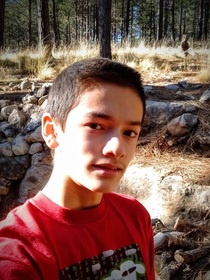 Hi everyone! My name is Jack Hayes, and I’m one of the other authors for the Galactic Exploration collection. I’m a homeschooled freshman, trying to get good grades and finish well. I enjoy school… most of it, that is. :-) I have a bunch of hobbies, including writing, reading, making short films, playing instruments and tinkering with tech. I think I might want to be a film director, software developer, or worship leader… I’m just not sure which at the moment. Oh yeah, and I love playing Pokemon Go. Here are some random facts about yours truly:
That’s all for now, but stay tuned! Jack 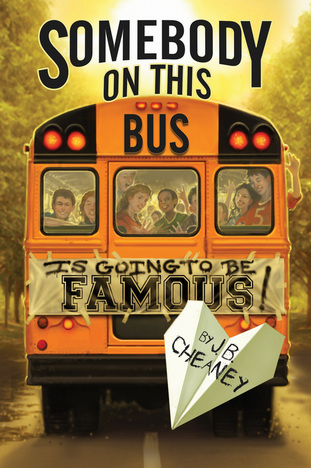 Interview by Brock Eastman Featuring Somebody on This Bus is Going to be Famous! Brock: How did you come up with the idea for this book or series? or What was your inspiration for writing this book? Janie: I like to tell people that I don’t get ideas—they get me! When I was a kid I wanted to be famous, and spent of lot of time in school (when I should have been learning stuff) imagining myself as an actress or movie star or director or Madame President. “Fame” is the gold ring of our celebrity culture, but I think kids who aren’t looking for fame per se are still grasping for a sense of significance and meaning. Anyway, one day I was imagining a high school reunion where one of the class members had moved on from graduation day to be very famous—how would the others react? What would be their memories of that person, and did they have any inkling of future fame? Brock: Tell us about the main characters? Who are they, what makes them unique. Janie: The most obvious feature of SOTB is that it boasts nine main characters! They all live in the same subdivision and take the same bus to school every day. Most of them can be tagged with a recognizable “type,” but if you know anything about people, you realize the tags don’t stick. As we get to know each of the characters better, their masks will slip, but here’s what they look like at the beginning: Shelly’s the rock star, Bender’s the bully, Miranda’s the earnest candidate for “best friend,” Kaitlynn’s the chatterbox, Spencer is the brain, Matthew’s the quiet one, Jay’s the jock, Igor’s the clown, and Alice is the shy girl you barely notice. But underneath . . . Brock: In three sentences (or you can choose three words) what is this book about? Janie: Growing up. Learning yourself. Seeing others. Brock: Do you outline the entire book before starting, or do you write as you go and let the characters take control of the story? Janie: I wish I could outline the entire book before starting out, because then first drafts wouldn’t be so hard. But I can’t do it—I have to start with a setting and situation, a handful of characters and a rough idea where I want to go, and usually stall out about three chapters in. Then I back up, rewrite, and hope the story will carry me a little farther. Usually, it’s not until I’m about two-thirds through the rough draft that I get a sense of the whole plot and how it’s going to work. Brock: How do you believe this story relates to the lives of readers? Janie: At this age, kids start looking outward for affirmation. I’ve noticed it while teaching writing classes, even among homeschoolers: from the ages of 7 through 11, if I’m reasonably entertaining I can get them to look at and listen to me. Around the age of 12-15, it gets tougher—I have to stand on my head (or the equivalent) to get their attention, because they are so focused on each other. They’re beginning to separate themselves from their home and parents and look around at their peers for clues about what kind of people they are. They are obsessed at this age with what their peers think about them. That’s what most of my kids on the bus are like: each has personal ambitions, but different levels of confidence. Brock: What is your favorite genre to write for? Janie: If you mean age: I had to find this out by experience. Starting around the age of 25 and for the next two decades, I wrote a total of four novels for adults. Not one of them were published, and it wasn’t for lack of trying! Then I had an idea for a novel directed at younger teens, and The Playmaker became my first published novel. After that I gravitated to a slightly younger age, and middle grade is where I ended up. Ironic because middle school is where I was most miserable as a kid! If you mean literary genre: When I was a kid the genre I liked best was historical fiction, and that’s still largely true. So that’s what most of my children’s novels have been: The Playmaker and The True Prince are set in Elizabethan London during Shakespeare’s time; My Friend the Enemy is a World War II story, and my next novel, out this fall, is about Hollywood and the early silent movie industry. Brock: Any certain research required for the book, or is it all from your imagination? Janie: Most of my novels require some research. For this one, I was writing about a school bus when I’d never ridden a school bus. My local school transportation contractor let me explore some of the busses in his fleet and ask him questions. Brock: How do you strike the right balance in your book? Janie: Hmm. . . .The “right balance” usually strikes itself. Most of my books have a serious point, but I try not to be too serious—I strive for a light touch. Brock: Why did you choose to focus on nine main characters? Janie: Because interaction throughout time is part of the theme. As I mentioned, kids ages 12-15 are starting to look to each other more and more for correction and affirmation—hence all the agony about what’s cool and what’s not—and relationships are becoming more fluid for them. Also, I wanted to stress that we all don’t know nearly enough about each other as we think we do. Each of my characters has his or her own life, but they are all mysteriously related—not least, around a real mystery. Each will turn out to hold a clue to the mystery, whether they realize it or not, and they will solve the puzzle together. Brock: If your book changed as you wrote it, how is it different than how you originally planned? Janie: I originally submitted the manuscript to my previous editor at Random House. She thought it had possibilities but suggested some fairly minor revisions that would strengthen Miranda, tone down Shelly, and change the motivation of one pivotal adult character (of whom I can’t tell you, since they’re part of the mystery!). I made the changes, which improved the manuscript, but the editor passed on it anyway. The changes my new editor suggested mostly had to do with cutting material—she’s very big on cuts! The basic plotline and characters, though, are essentially the same as when I submitted the manuscript the first time. Brock: How much leeway do you give yourself with facts in a Historical GENRE TYPE (Romance, Thriller, etc.)? Janie: That’s an interesting question. Generally, the closer the setting is to our own time, the more accurate I try to be. In My Friend the Enemy, I caught a dating error just before the final copy was to be printed. My editor and I discussed how important it was, and I decided it needed to be changed, even though it wasn’t anything like as significant as V-J Day. But there are still folks around who remember the War, so I wanted to be as accurate as possible. It meant rewriting one chapter and adding a few paragraphs elsewhere, but I’m glad we did it. For my Shakespeare books, I fudged a few dates and people to suit the plot, and excused myself in the historical note at the end. Nobody has complained! Brock: How do you hope parents will use this book with their kids? Janie: It’s a good read-aloud for slightly younger kids (ages 9-11), as long as the listeners can keep the characters straight. For the age for which it was intended, it’s a unique character study. Parents who have read the book might want to direct their kids to the caricature on my website, and see if they can guess each caricature represents. It might also be fun to talk about analogies: who do we know who’s most like Bender? Shelly? Miranda? Jay? Brock: What do you hope kids take away from this book or series? Janie: Partly that their lives are taking them somewhere—all the small (and big) disappointments, triumphs, agonies, and fun times are shaping them into the people they essentially are. And God made us all different. And that’s good. Brock: Are you a full-time or part-time author/writer? Janie: Full time—I also write regularly for World Magazine, I blog, and I am co-founder and writer for RedeemedReader.com, a children’s book resource for Christian parents and teachers. Brock: How long does it usually take you to write a single book? Janie: They’ve all taken about 10 months, unless I have to do a massive rewrite (which happened once). That doesn’t include the editorial work, which can drag on for a year and a half. Brock: Expound on the spiritual themes in the book/series? Janie: We are a work in progress, and “he who began a good work in us will surely see it through to the end.” When you’re in early adolescence, as most of my characters are, small setbacks can seem like THE END, but they’re actually the tools God is using to shape us and help us grow. At the very end the book, after a serious bus accident, one of the characters realizes how great a gift life is. That’s what we should be feeling every day—“and be thankful.” Brock: When did you realize you wanted to become a writer? Janie: Not until I was in my mid-twenties. As a child, on up through my teens, I wanted to be an actress (or failing that, a costume designer!). As a young wife whose husband did not want her to work (which suited me just fine), I had a lot of time on my hands, and only so much of it could I spend reading, even though I read a lot. So I decided to try my hand at writing a novel. It ended up taking eight years, what with babies coming, and all, and it wasn’t very good, but by my absolutely final rewrite, I understood something: Novel writing is a lot like acting out a play in your own head. And you get to play all the parts! Brock: What are some of the strongest influences on your writing? Janie: If you mean authorial influences, T. H. White’s Once and Future King was my favorite book as a middle-grader, and pretty much all through my teens. White taught me about depth of character and how to portray it. In my thirties I encountered the Canadian writer Robertson Davies, in particular a series of novels called The Deptford Trilogy. What most impressed me about his work is the use of detail and how he was able to put the reader right into a scene. Brock: What’s your view on e-books and the new publishing revolution? Janie: Not even publishers know what to think of e-books yet! I think I’ll always prefer physical books, but it sure is easy and convenient to order something from Amazon and have it show up on my Android reader within 30 seconds. I’m still amazed by that. But if I don’t mind waiting, I’ll wait for a book with pages. In children’s publishing, the only thing that bothers me is apps. An e-book is still a book, but a book app is something else. More like a video game. I wrote about that here. Brock: In what ways does your faith impact how you approach writing? Janie: It’s reinforced for me the value of prayer! More times than I can count, I’ve been blocked or stymied in the fiction-writing process, and the Lord helps me see my way through it. Beyond that, every writer writes from a certain worldview. A Christian worldview helps me to be more discerning about what I write—don’t make wild promises (“You can be anything you want to be”) or grim futures (let’s put a bunch of teens in a controlled environment and see how long it takes for them to kill each other!). A story doesn’t have to be squeaky-clean or happy-happy. But it should end with hope. Brock: Coke or Pepsi? Janie: Sweet tea. Brock: Soft shell or Hard Shell tacos? Janie: Chalupas. Otherwise, hard shell. Brock: Favorite place to vacation? Janie: You had me at “vacation”. Brock: Favorite season? Janie: I’m with C. S. Lewis: autumn. Brock: Do you have a particular drink or food you consume when you write? Like coco, raspberry tea, animal crackers? Janie: I write lean. Brock: Do you have a favorite Bible verse? Janie: 2 Corinthians 5:16-21, if I had to pick. Also Colossians 1:17: “And He is before all things, and in Him all things consist.” I’ll never get to the bottom of that one. Brock: So, what’s your next book? Janie: I’m glad you asked! We finally decided on a title, after kicking around a lot of options: I Don’t Know How the Story Ends. It was my editor’s idea and I wasn’t crazy about it, but it’s growing on me. Especially after I ran an informal poll on my two Facebook pages and her title won over mine by about 5 to 1. Anyway, it takes place in the summer of 1918, when a 12-year-old girl and her little sister move down to California for the summer to stay with their aunt, who lives in a poky little suburb called Hollywood. Only it’s not so poky anymore, and the aunt’s stepson has gone plumb loco about motion pictures. He has a cameraman, an idea, and now he has a female lead—let’s make a movie! It’s scheduled for October: “like” my Facebook page and you can see the cover reveal in a month or two. It was the giant Spinosaurus on the cover that stole my attention while I perused the bookshelves of my local bookstore. I knew that moment I had to have the book, I opened it up, read a few pages and was hooked. Dinosaurs have always been an interest in mine. Growing up my room was full-on dinosaur, from the bedspread and curtains to the shelf of books and the toy box filled with dinosaurs. I was the only second grader that could spell paleontologist. And then Jurassic Park the movie release and I further fell in love with Dinosaurs. Edge of extinction brings together two of my favorite types of stories; post-apocalypticism and dinosaurs. A unique and never before background to this story set it apart from the other middle grade books and series out there. Readers looking for something new and full of action, will want to get their hands on this. After finishing the book I knew I wanted to reach out to Laura and do an interview, what I didn't know was that she too is a believer. Brock: What inspired you to write the Edge of Extinction series? Laura: I took a quick trip to New York with my mom, and we spent an afternoon wandering around their Natural History Museum. The dinosaur display there is amazing. But amongst all those gigantic bones, I spotted one little dinosaur skeleton set off to the side. It was roughly the size of a dog, and I wondered if we brought dinosaurs out of extinction, would we have them as pets? Would they replace dogs? Cows? Would we have them in zoos? And in that instant, I had a vision of a girl running like mad to get the mail, gigantic dinosaurs hot on her heels, and the very first scene of Edge of Extinction was born. Brock: Can you tell us about Sky Mundy? Who is she? Laura: Sky Mundy is resilient. She lives in one of the last underground refuges of the human race, and she’s despised by almost everyone around her. But despite that, she hasn’t given up hope. She knows there is more to her father’s disappearance, and she’s not stopping until she finds out what happened to him. Brock: Would you mind giving us one fact about each main character that no one else knows? Laura: I love this question!
Brock: It's one of my favorite questions as well. I like learning a bit more about the characters in the books I read. In three words what is this book about? Laura: Dinosaurs. Friendship. Survival. Brock: You had me at, 'Dinosaurs.' Did you outline the entire book before starting, or do you write as you go and let the characters take control of the story? Laura: I didn’t! I’ve heard people call writers like myself “panters” because we fly by the seat of our pants! I usually just start with an idea and let the story go where it will. My characters dictate what happens next. Brock: I'm a by the seat writer too. I always tell kids when I speak that if your characters aren't talking back to you or leading you into the next moment of the story, then you (as the author) don't know them very well. How do you believe The Ark Plan relates to the lives of readers? Laura: Sky’s story is essentially about overcoming the odds and believing in yourself no matter what everyone around you is telling you, and I think that relates to all of us. Sky has the grit and determination to see her plans through, but she realizes along the way that it’s okay to accept help from friends. Brock: What is your favorite genre and audience to write for? Laura: I taught seventh grade English for six years, so the middle-grade category has my heart, and probably always will. Genre? I’d have to say Fantasy and Science Fiction are my favorites, just because that’s what I tend to read the most. Brock: Is there any biblical background or basis for the series? Laura: I grew up going to Christian schools all the way to college, so I had Bible stories etched into my brain and memory verses inscribed in my soul by the time I stepped out of my protective Christian school bubble and into the “real world.” When I started working on Edge of Extinction-The Ark Plan, I used the familiar story of Noah’s Ark as a vehicle, and the symbolism of Noah’s ark is woven throughout both books. (Book two is titled “Code Name Flood.”) So while my book wouldn’t technically be considered a Christian book, readers do have to have a working knowledge of the story of Noah in order to really understand what’s happening, which I like! Brock: I like that too. The Bible is full of wonderful stories with interesting people and events. The truth behind it for us Believers makes these stories something more, but the allegorical value and story arcs inside are great road maps for storytelling. Do you have a favorite Bible verse? Laura: Ephesians 3:20-21- Now to Him who is able to do exceedingly abundantly above all that we ask or think, according to the power that works in us, to Him be the glory in the church by Christ Jesus to all generations, forever and ever. This verse was in my acknowledgments, which unfortunately didn’t make it into the first edition of my book. Brock: What sort of research did you do for a book about dinosaurs? Laura: All of the dinosaurs in my book really did exist, and I had to do some extensive research to make sure that I represented them as accurately as possible, which was tricky, as new dinosaur discoveries are coming to light almost daily. For example, there is now a controversy over whether our not our favorite dinosaur the T. rex had lips! I kid you not. But I was also lucky because we don’t really know everything about dinosaurs; they lived a million years ago after all, so I was able to fill in the gaps with my imagination. (If you want to read about the mess I made with the brontosaurus, just check out the author’s note in the back of my book!) Brock: I did enjoy your author's note. In fact the back of the book acknowledgements, author notes, etc., are typically the first place I look after reading the first few lines of book. Did you pull any of your characters from your life? Laura: I think as a writer we pull bits and pieces from here and there as we weave our stories together. For example, Todd has a lot of the characteristics of my younger brother Aric, but it took family and friends reading the book for me to realize that Ivan is a lot like my late grandfather. Brock: How does it feel to have your work published? Laura: Surreal. I’ve been a bookworm ever since second grade when I discovered C.S. Lewis’s The Lion, the Witch, and the Wardrobe, and I’ve always wanted to be a writer. (To be honest, my original plan was to be a vet and a writer a’la James Herriot, but I dropped the vet bit and went the teaching route instead!) Getting published for me was a lengthy process, and when I finally got the call that my book was going to be published, I couldn’t quite wrap my head around it. In fact, the whole thing didn’t feel quite real until I was holding my book in my hands, and, even then, it took a few days to sink in. Brock: There's nothing better than holding that 100k plus words of hard work in bound form. If your book changed as you wrote it, how is it different than how you originally planned? Laura: My book went through A LOT of transformations in its path to publication. It started out life as a YA book, but, in my hunt for a literary agent, Alec Shane, my literary agent’s assistant, suggested that the story would really work better as a middle-grade adventure novel. And he was SO right. So after revising it into a middle-grade novel (a too long middle-grade novel I might add), I landed my fabulous agent Jodi Reamer, and she brought the book to the publishing houses. It was sold as a two-book deal with HarperCollins, so my original book was then split into two books. The first book, Edge of Extinction-The Ark Plan is actually about ¾ of my original novel. Book two Edge of Extinction- Code Name Flood is the remaining ¼ plus a bunch of new material that I absolutely love. But as I look at the finished book sitting on my desk now, I couldn’t imagine it any other way. Brock: And it's a great middle-grade novel at that. How do you hope parents will use this book with their kids? Laura: I hope parents use this book to help their kids LOVE reading. It’s why I wrote the book. As a seventh grade English teacher, I made it my mission to get kids reading. I have a firm belief that it just takes one book, the right book, to turn a non-reader into a reader. Many of the kids who repeatedly told me that they “hated” reading were boys, and in a lot of ways I wrote this book for them. Was it my best marketing strategy to create a book specifically for people who don’t read? No, it wasn’t. But being a passionate teacher makes you do crazy things sometimes. Brock: Well I'm an adult who hated reading as a kid myself, and after finding the right series grew to love and eventually became an author with the same passion (as yourself) of getting books into the hands of resistant readers. What do you hope kids take away from this book or series? Laura: This is a hard one. I’d say I want them to take away Sky’s tenacity, Shawn’s ingenuity, and Todd’s heart, but more than that, I hope that they take away a LOVE of reading. That they emerge from Edge of Extinction and have to look around and blink a bit before they remember that there really AREN’T dinosaurs still wandering around. I want them to have lived within the pages of the book, breathed the heady topside air along with Sky and her friends, and that the story churns in their brains for days after they finish the book. Brock: What’s your view on e-books? Laura: E-books don’t smell as good as the real thing. The end. Brock: Couldn't agree more! What was your favorite book as a teen or child? Laura: If it had pages, I probably loved it. That sounds like an exaggeration. It isn’t. I was addicted to books, and I used every excuse possible to slip between the pages of a story and get lost in the worlds I found there. There used to be a rule that I couldn't bring books to friend’s houses…because I wouldn’t play with the friends. Addicted I tell you. If I HAVE to choose, I’d say anything written by Tamora Pierce, The Thoroughbred Series (I had a major horse obsession as a kid), The Chronicles of Narnia, Lillian Jackson Braun’s Cat Who series, and Harry Potter will ALWAYS have my heart. Brock: Harry Potter was the series that got me reading. Like it or hate it, the series brought reading back to popularity for the younger generation who was leaning toward television and video games (The latter being me.) What are your hopes for your future as an author? Laura: I want this book to be the first of many more. I have so many stories yet to tell, and I want to still be in the author game ten, fifteen, fifty years from now. I want to die with a book half written…and everyone to be horribly sad about that! Brock: Well that just made me smile. What is your favorite quote? Laura: “Dreams don’t work unless you do.” Brock: Now for some rapid fire questions of the non-book sort. Coke or Pepsi? Laura: Neither. Green tea. I lived on Diet Coke in college, up to six or seven a day, and I have a mouthful of cavities to show for it! Green tea is a million times better and better for you. Make the switch! Brock: Soft shell or Hard Shell tacos? Laura: Soft. I’m not coordinated enough to eat the hard variety without losing all the taco guts onto my plate. Brock: Favorite place to vacation? Laura: My family’s lake house in Monticello, Indiana. I grew up going there every summer. It’s where my heart is happy. Also, my parents are there, and they are some of my favorite people in this whole wide world. Brock: Favorite season? Laura: Fall. Or as I call it, hooded sweatshirt weather. Brock: Do you have a particular drink or food you consume when you write? Like cocoa, raspberry tea, animal crackers? Laura: I love having a cup of coffee when I write. Part of it is the ritual of sipping something warm, but I also have a baby that doesn’t sleep through the night yet, so without it, I’d fall asleep on my keyboard. Brock: Favorite color? Laura: Orange. Brock: Do you listen to music while you write? If so, what are some examples? Laura: I sometimes put on Pandora when I write to block out the sound of my husband watching television in the other room. I can’t focus enough to write if the songs have lyrics, though, so I listen to a station based on the Forrest Gump soundtrack. Brock: Thanks for answering all my questions on The Ark Plan. I can't recommend this book enough to my readers. If you enjoyed the chapters with TIffany and Oliver on Featured Products Lyt, then you'll really like The Ark Plan, Book 1 in The Edge of Extinction. In case you need a reminder of an awesome dinosaur scene on Re Lyt. Check out this moment when a velociraptor busts through the top of the corridor. Plus scrolls down to see some of the art from the visual glossary in Unleash. (Unleash, Book 3 in The Quest for Truth) 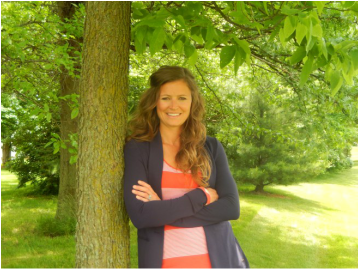 Laura Martin believes in chasing her dreams and she brought that philosophy to her classroom for six years as a seventh grade English teacher. Edge of Extinction-The Ark Plan is Laura’s first novel—and a dream come true. When she isn’t writing stories about dinosaurs and underground civilizations, she can be found in the Indianapolis area with her dashing husband, Josh, her adorable kids, daughter London and son Lincoln, and two opinionated bulldogs. Written by Brock Eastman
The quick and purest answer is God — the Master and Creator of the whole world, the universe for that matter. We know from the very beginning of the Bible that God created a wonderful place for His beloved creation (us) to live within. He thought of everything and, as John Hammond in the movie Jurassic Park said of his genetically engineered animal park, “I spared no expenses.” Neither did God. God created man in His own image, and gave us control over all creatures on land, in the sea, and in the sky. He handcrafted a world with soaring mountains, seemingly bottomless sea trenches, puffy white clouds, rolling liquid rock (lava), animals that run, birds that fly, fish that swim, water as ice, fog, or rain. He gave us emotions that gave our life depth and made it real. God crafted a beating heart to work within our body; providing life blood to our systems, each of which is also handcrafted — from kidneys that clean, a stomach to digest, a tongue to taste, ears to hear, and eyes to see, to a brain to take it all in and make it all work together. All the above to say, we are His greatest creation (Psalm 139:13-14), and He made us in His image (Genesis 1:27). By doing so He made us gifted to be creative like He was. And then He surrounded us with things to inspire our creativity. Wow, what didn’t He think of? The answer nothing. So what inspiration do you draw from? I’m blessed to live in Colorado where mountains abound and our weather varies hourly. In the winter we get snow in the morning and it melts by the afternoon with wonderful warm sunshine. We might have a sunny morning where light rainstorms pass over in the afternoon cooling us off in the summer. The mountains are just a fifteen-minute drive away, and I can be lost in pine forests and soaring peaks after pulling off the asphalt and walking a short ways into the wilderness. Animals abound, and while I hope to see a bear someday (at a distance of course), I’ve seen elk, antelopes, fox, eagles, owls, mountain goats, deer, and a lot of other wildlife. God surrounds us with beauty, and it’s easy to draw inspiration from something so majestically created. Some might say, “Well that’s Colorado! I live in ___(Fill in the blank)___.” Well, I grew up in Illinois, where my writing all started. Illinois — flat cornfields, muggy summers, frigid winters — but God laid His beautiful handiwork there as well. There is nothing like the spring rain that drizzles for hours against your window and the ominous thunder and lightning that accompany each storm. The summer, while humid, brings warmth to swim in wooded lakes and evenings where I can roast marshmallows over campfires at night. The autumn harvest and the orange, red, and yellow leaves that cloak the trees make fall in Illinois my favorite season. Seeing the bright orange pumpkins lying in wait among the black earthy fields or running through huge corn mazes with friends is all part of the fall. And although the winters are cold, cold, oh so cold, those first snows are wonderful and glistening as I would walk at night with large fluffy snowflakes fluttering down, while holding my wife’s hand. Those are some of the scenes and memories that float through my mind as I write, but inspiration comes from more than just the nature around us. God has gifted others with a talent I do not possess. Music! I like to listen to soundtracks while I write. Some of my favorites are from movies like The Village, How to Train Your Dragon, Pirates of the Caribbean, Harry Potter, Lord of the Rings, The Patriot, Jurassic Park, and Last of the Mohicans. While I’m in no way musically inclined, I did win a blue ribbon for a church talent competition singing a duet of “Awesome God.” (OK, I admit, as I recall, everyone won blue ribbons.) The talent to create imagery and invoke emotion through sound is clearly a gift from God. These composers create the music that sets the mood for my writing while not distracting me with lyrics. Often I’ll be pecking away on my keyboard and find myself flying down a path I don’t expect my characters to take, then I reflect on what tracks I’ve just listened to, and lo and behold, the tempo or theme of the scene matches the music. Sometimes it’s comedic or dark, fast paced, or a relaxing conversation. But it seems the stories always fit together well, and for that, I must thank God. So again, where do you draw your inspiration from? Ultimately you’re drawing it from God, but what medium has He used to get it to you? The whole Earth is His canvas. It’s wonderful to serve such an awesome and inspiring God. He so often is there when we don’t take the time to notice. |
Follow meArchives
May 2024
Categories
All
|
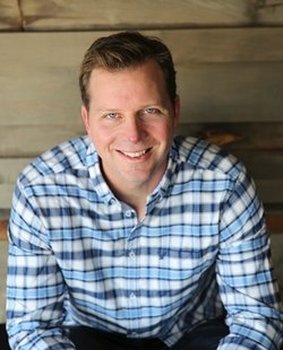
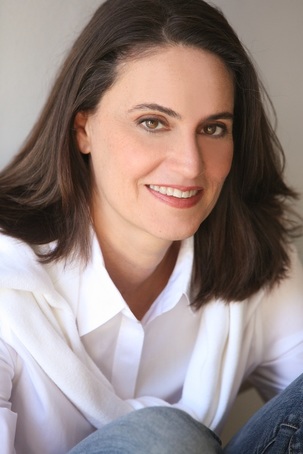
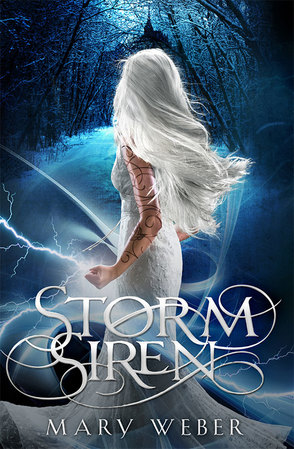
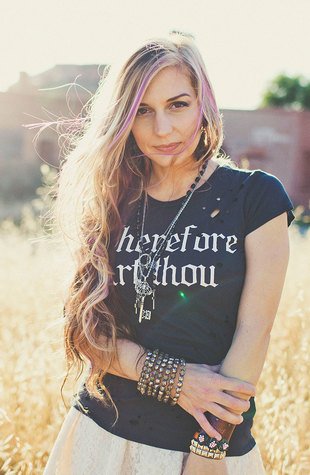
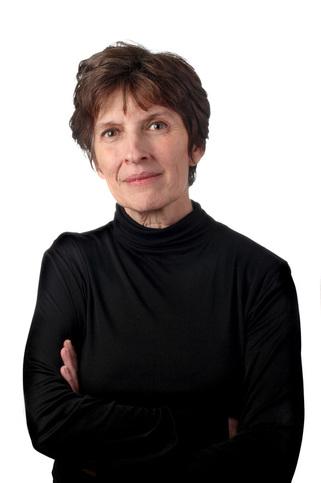
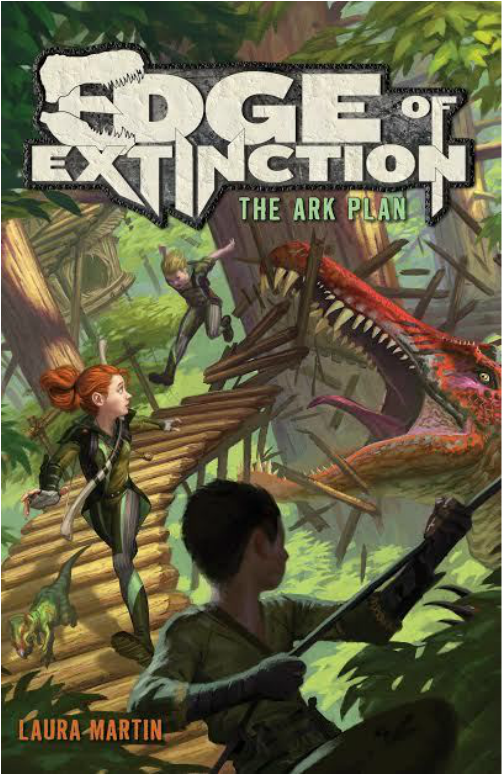
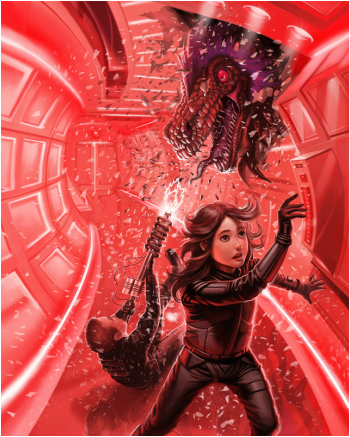
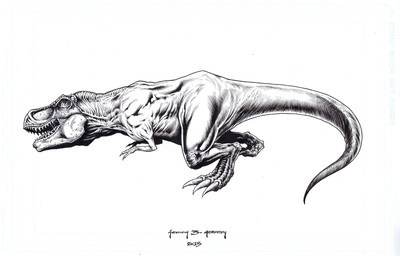
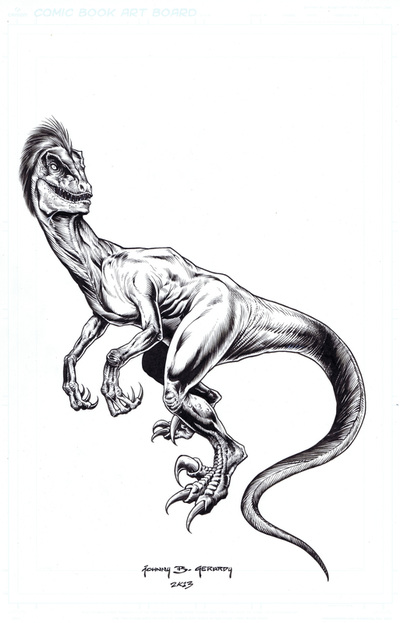
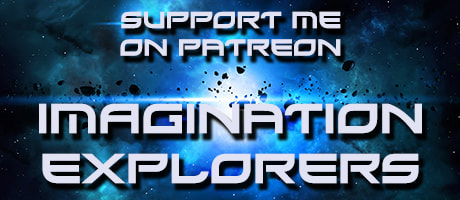
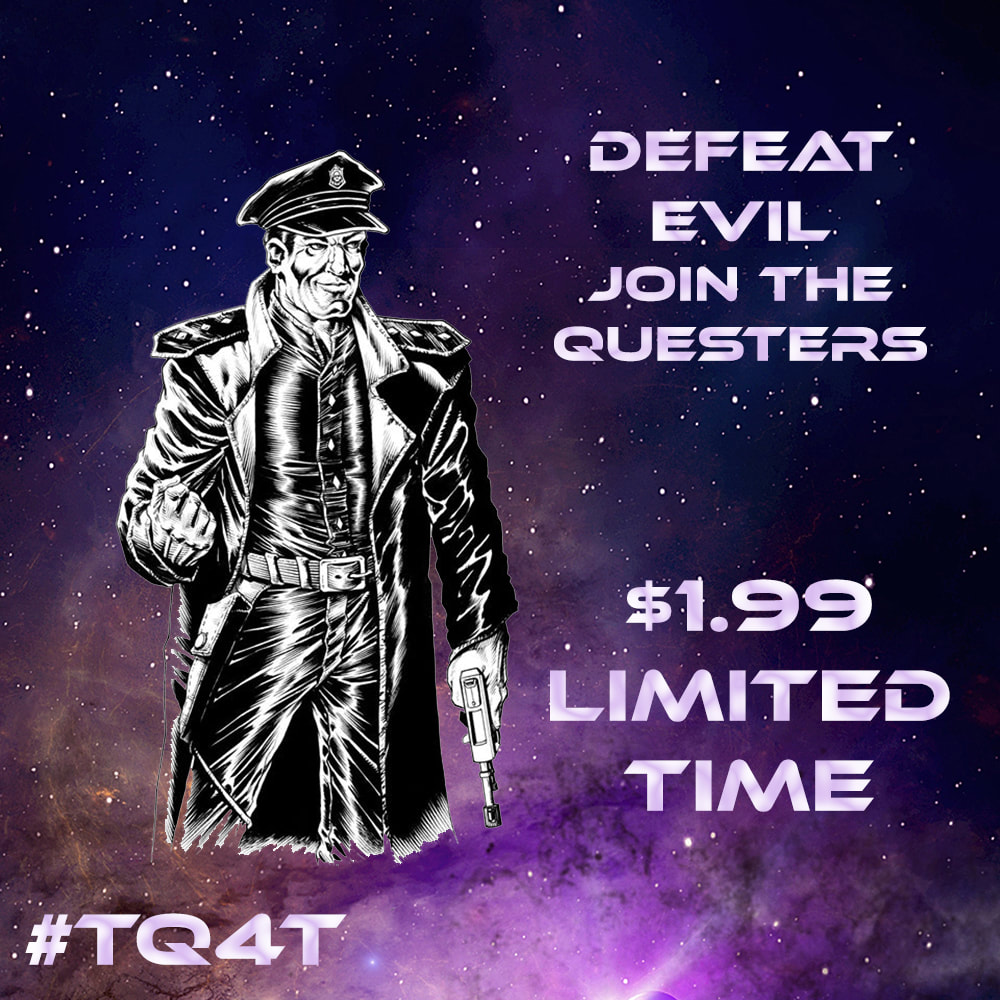
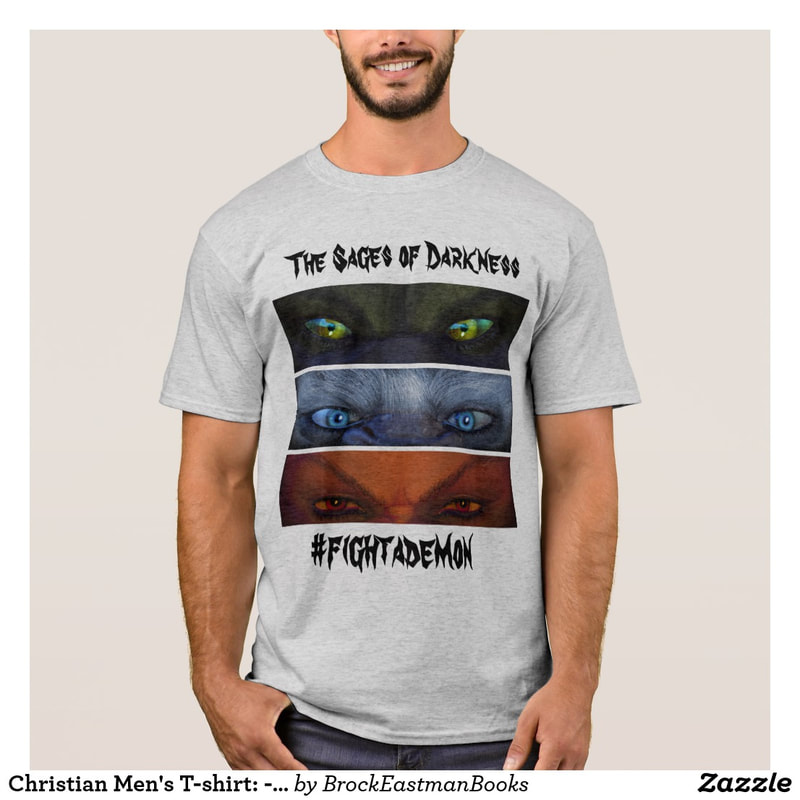

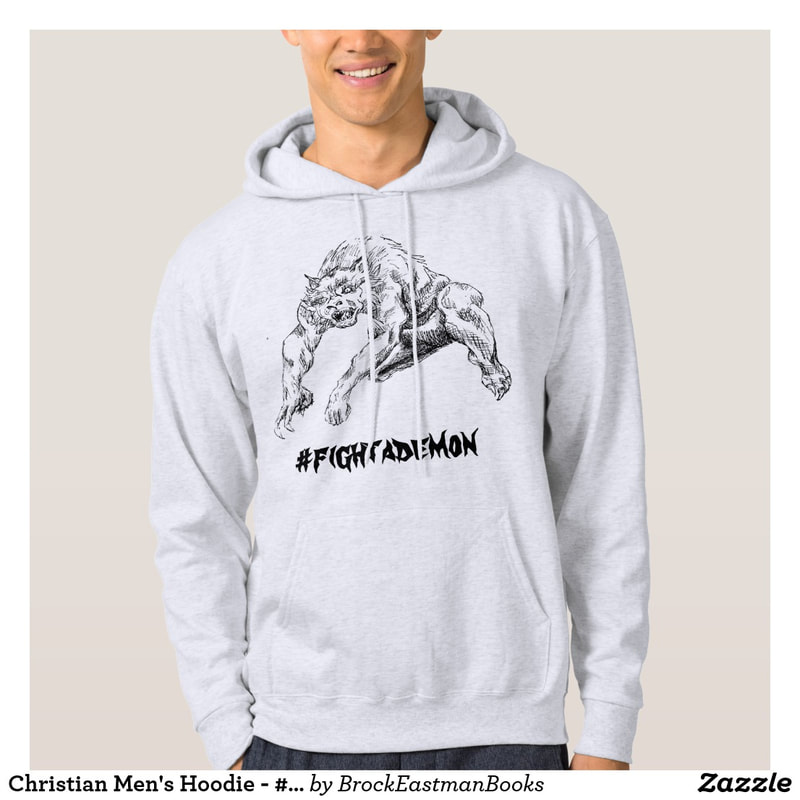

 RSS Feed
RSS Feed